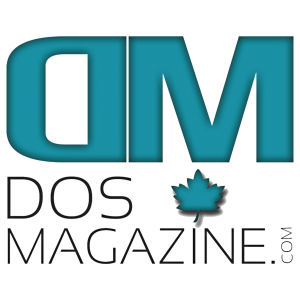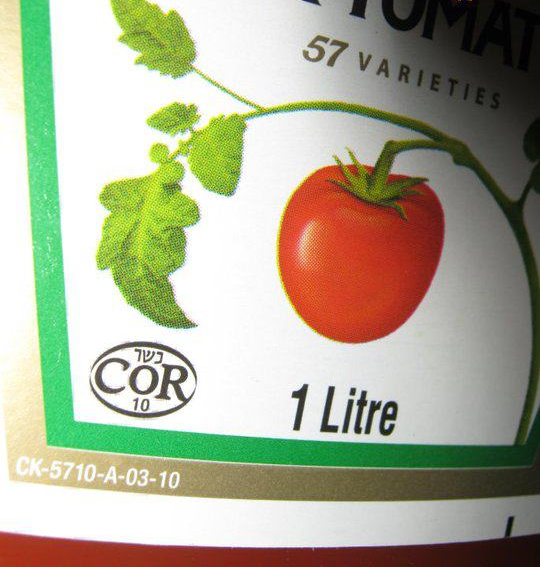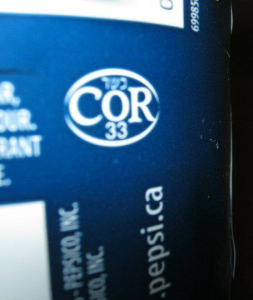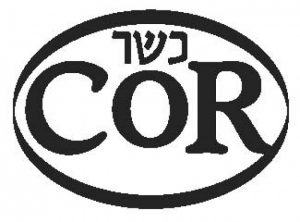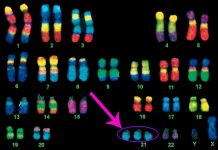In United States and Canada, many food products are marked with symbols that indicate they have been certified as kosher by various rabbinic institutions. “Kosher” is a Hebrew word that literally means “fit” or “proper.” When used in relation to food products, “kosher” means that the item in question meets the dietary requirements of Jewish law. It is best known for its kosher supervision service, with the COR symbol found on the labels of many commercial and consumer food products.
When your product or establishment is certified Kosher, shoppers know that you comply with a strict policy of kosher food laws, including cleanliness, purity and quality. But kosher means more than responsible food preparation. Kosher refers to a set of intricate biblical laws that detail the types of food that a Jewish person may eat and the ways in which it may be prepared.
To be certified Kosher, all ingredients in every product—and the process of preparing the product—must be certified for kosher-compliance too.
The process of kosher certification has been radically affected by deep changes in the food industry and by the fact that more than 80% of the products offered by the industry contains pre-processed ingredients. Industrialization presents marvelous opportunities, but the inexorable pace of change in industrial procedures and the complexity of foodstuffs and ingredients also present significant challenges for the kosher certification process.
Kosher foods are divided into three categories: meat, dairy and pareve. The following descriptions offer practical information for how your product or establishment can be classified.
MEAT
All meat and fowl and their byproducts, such as bones, soup or gravy are classified as Meat. Thus includes products that contain meat or fowl derivatives such as liver pills.
Items designated “Meat” must meet the following requirements to be considered kosher:
- Kosher meat must come from an animal that chews its cud and has split hooves. (Cows, sheep and goats are kosher; rabbits, kangaroos and fox are not).
- Kosher fowl are identified by a universally accepted tradition and include the domesticated species of chickens, Cornish hens, ducks, geese and turkeys. The Torah names the species of fowl that are forbidden, including all predatory and scavenger birds.
- Animal and fowl must be slaughtered with precision and examined by a skilled shochet, an individual extensively trained in the rituals kosher slaughtering.
- Permissible portions of the animal and fowl must be properly prepared (soaked and to remove any trace of blood) before cooking.
- All utensils used in slaughtering, cleaning, preparing and packaging must be kosher.
DAIRY
All foods derived from, or containing, milk are classified as dairy, including milk, butter, yogurt and all cheese – hard, soft and cream. Even a trace amount of dairy can cause a food to be considered dairy.
Dairy products must meet the following criteria in order to be certified kosher:
- They must come from a kosher animal.
- All ingredients must be kosher and free of meat derivatives. (Conventional rennet, gelatin, etc., are of animal origin and may not be used in kosher dairy.)
- They must be produced, processed and packaged on kosher equipment.
PAREVE
Foods that are neither meat nor dairy are called pareve. Common pareve foods are eggs, fish, fruit, vegetables, grains, unprocessed juices, pasta, soft drinks, coffee and tea and many candies and snacks.
Pareve presents fewer kosher complexities than meat or dairy, but certain points must be known:
- Foods may lose their pareve status if processed on meat or dairy equipment or when additives are used. Pure Chocolate, cookies and other snacks may not be processed with meat or meaty foods unless they are certified pareve.
- Certain fruits, vegetables and grains must be checked for the presence of small insects and larvae, which are not kosher.
- Eggs must be checked for the presence of blood spots, which are not kosher.
Additional Kosher Notes
There are many creatures that are not kosher, including most seafood (excluding kosher fish), insects, rodents, wild animals and their derivatives.
WINE: A special rule governs the production of wine. Even if all the ingredients in wine are of kosher origin, it is kosher only if production was done exclusively by Torah-observant Jews.
PASSOVER: The eight-day Jewish holiday of Passover involves a unique set of kosher laws. No leavened products or their derivatives may be consumed on Passover, even if they are kosher the rest of the year.
Many people consider an observant Jew to be someone who keeps the laws of Shabbat and eats only kosher food. But there are actually a wide variety of ways that one can observe these commandments.
In terms of keeping kosher, it helps to be knowledgeable about the various levels of this practice found in different segments of the Jewish community. This can help you decide what kosher practices you want to observe and also help you communicate better with others about how to eat together. If you’re invited to a meal in someone else’s home, it’s always best to ask before making any assumptions about their kosher practices. And when you’re inviting someone else to your home for a meal, it’s entirely appropriate to be upfront and specific about how you keep kosher, so that your guests are able to decide for themselves if they’re comfortable eating at your house.
